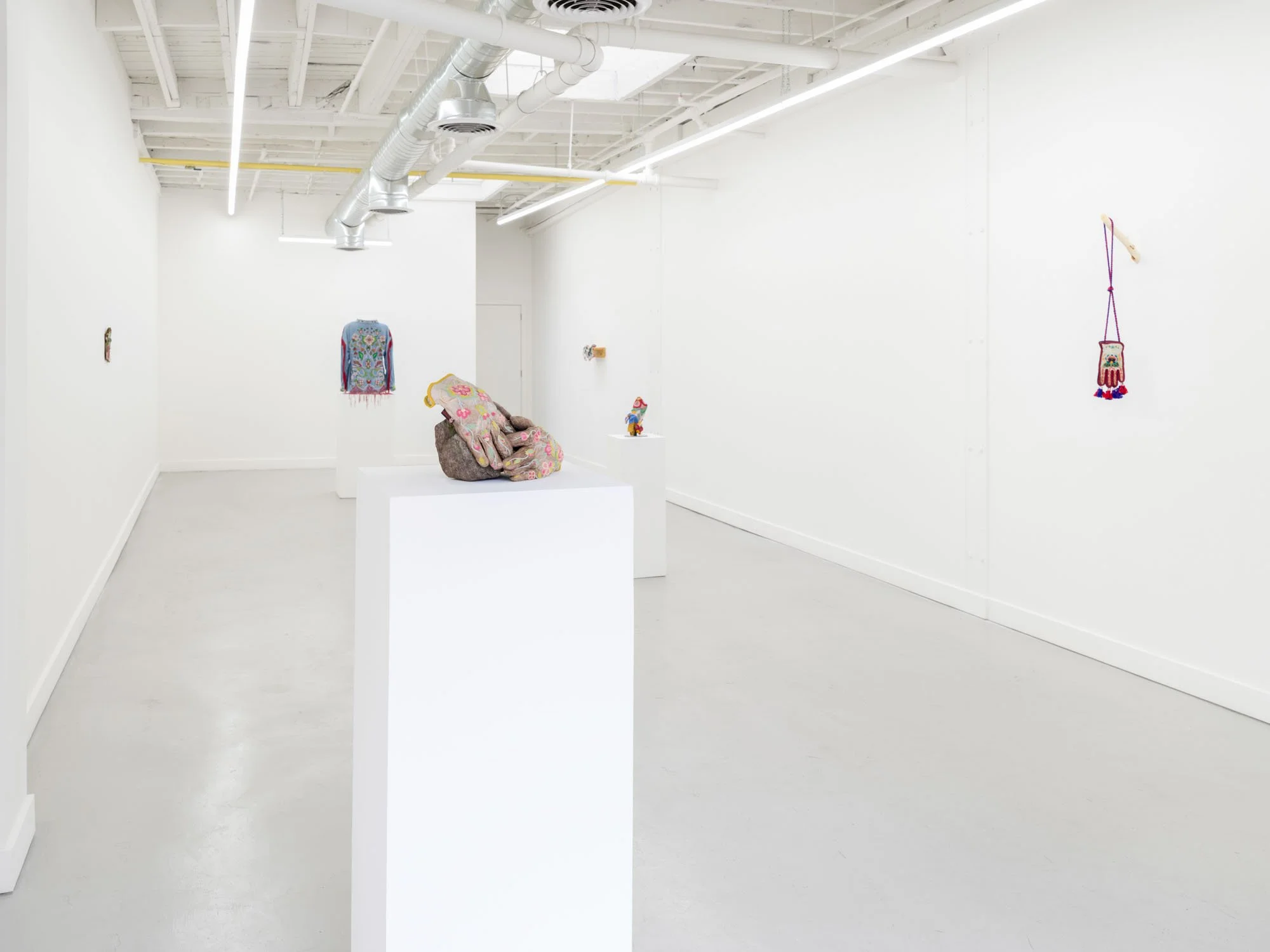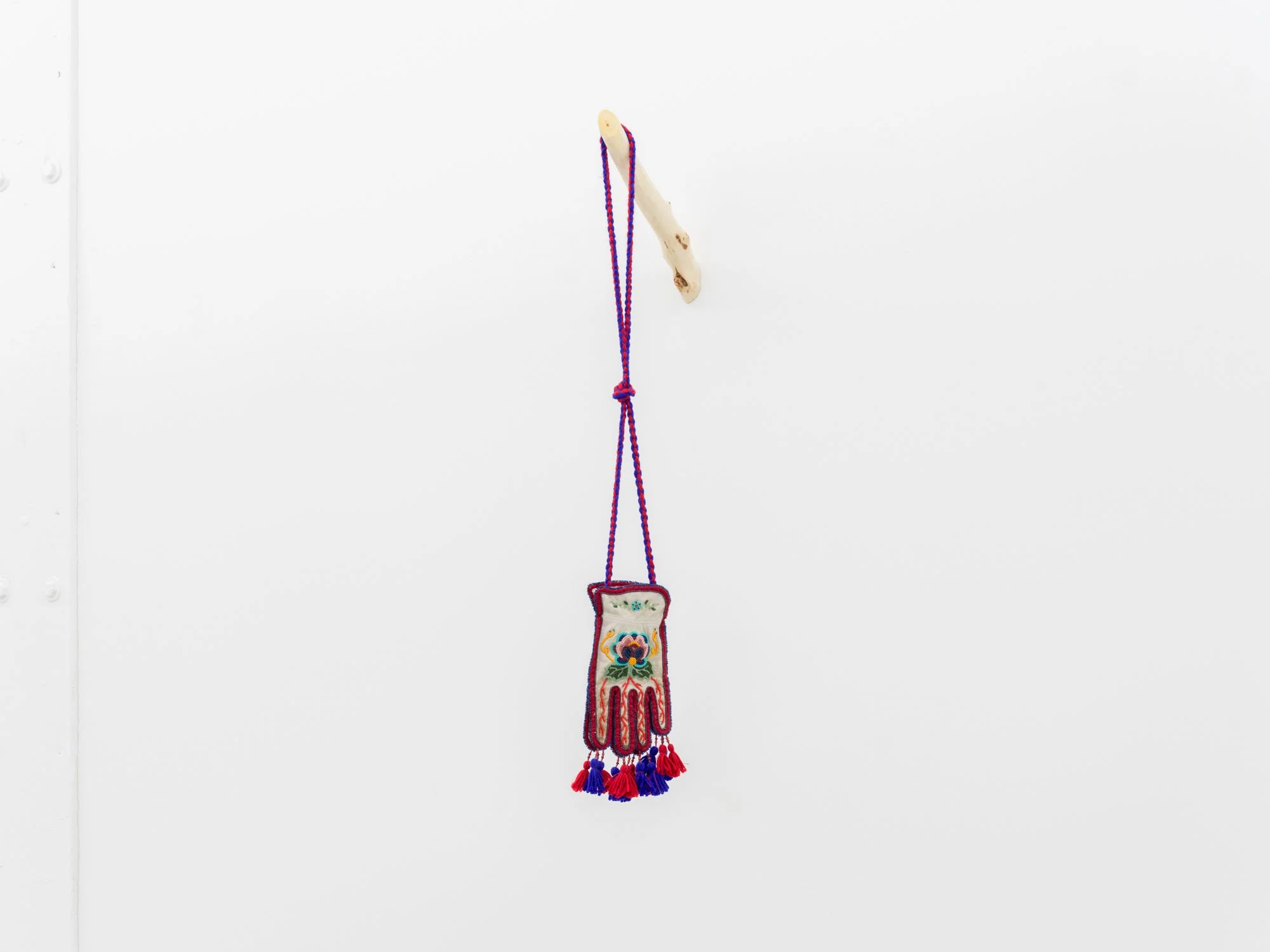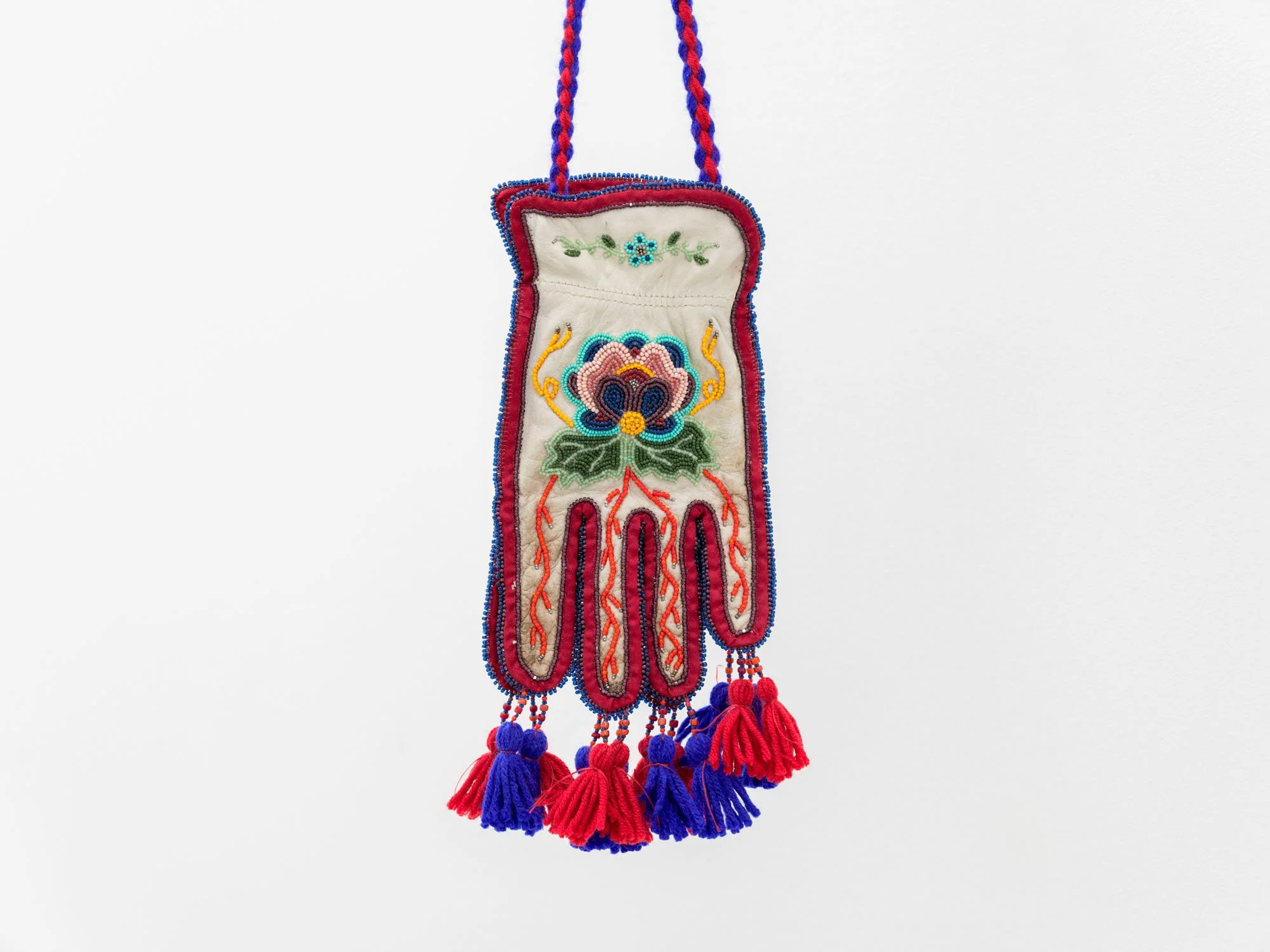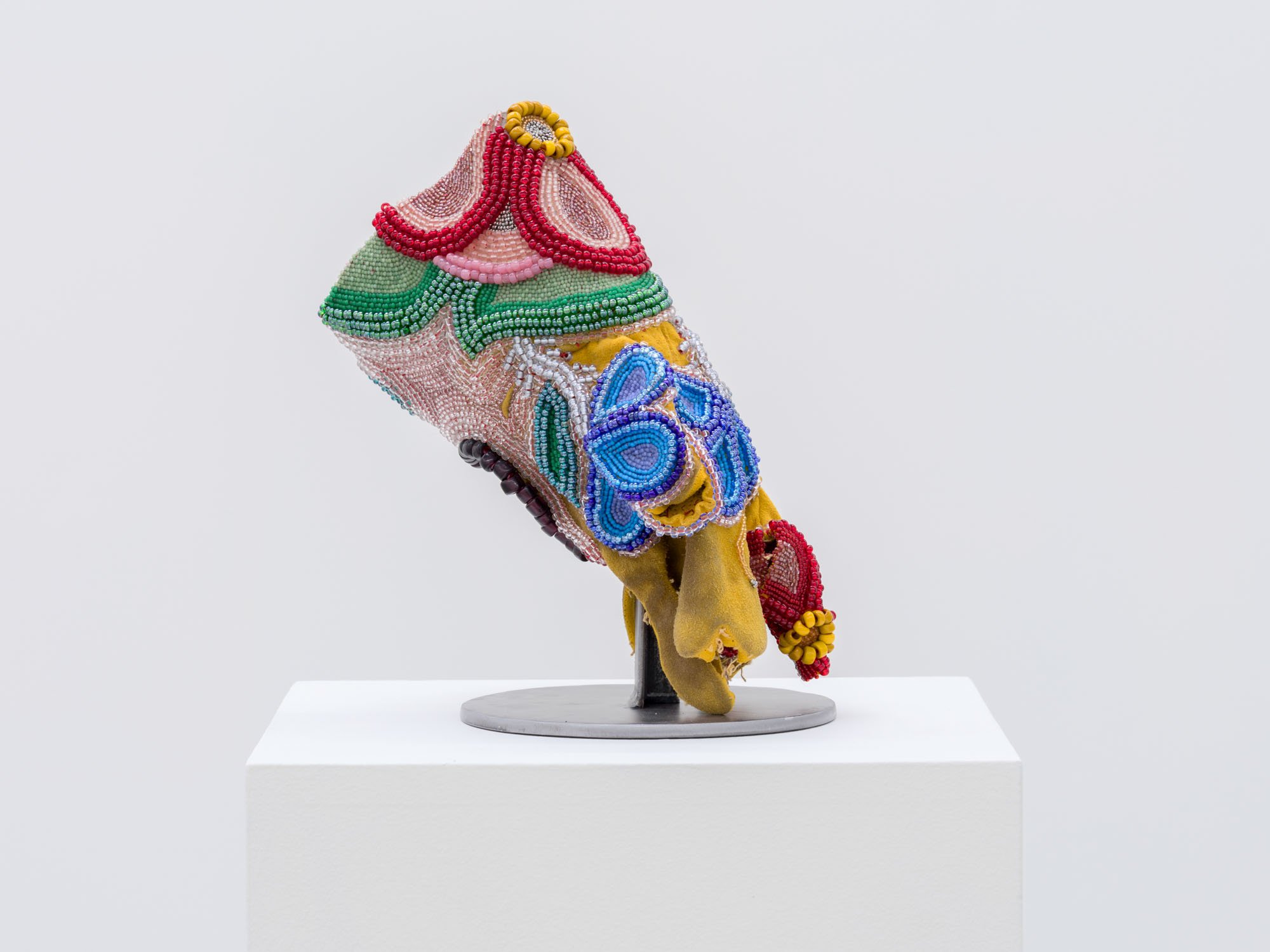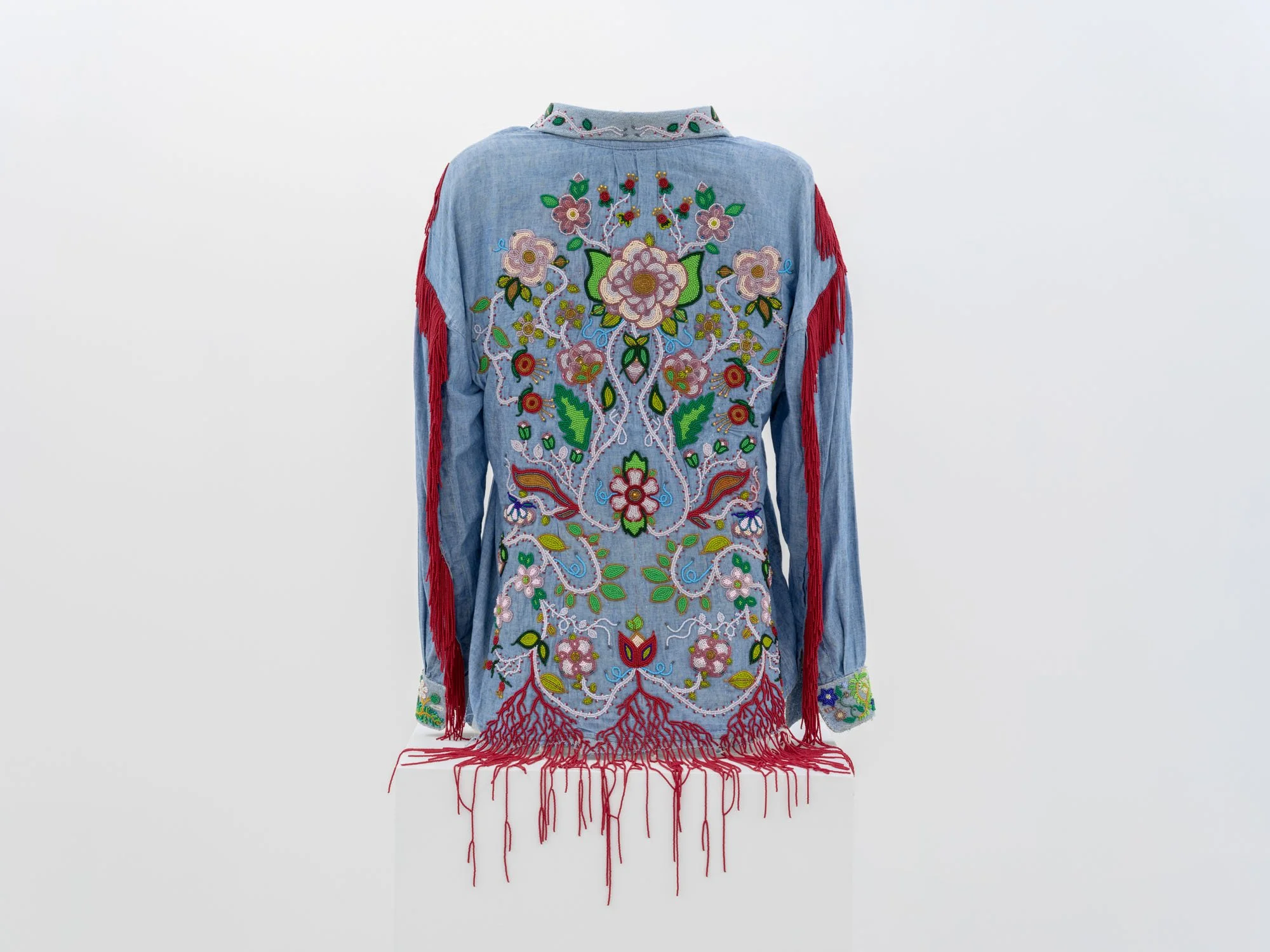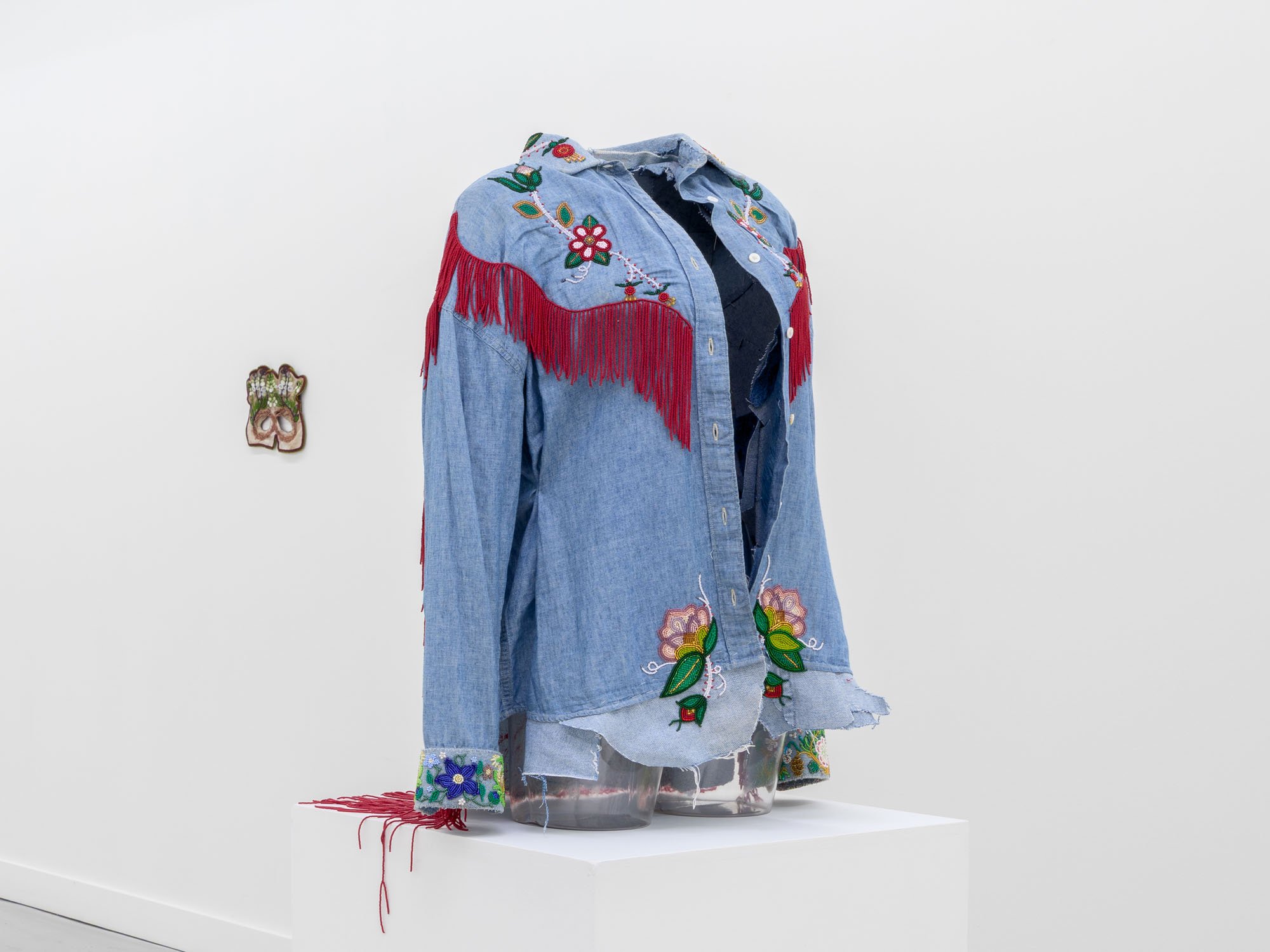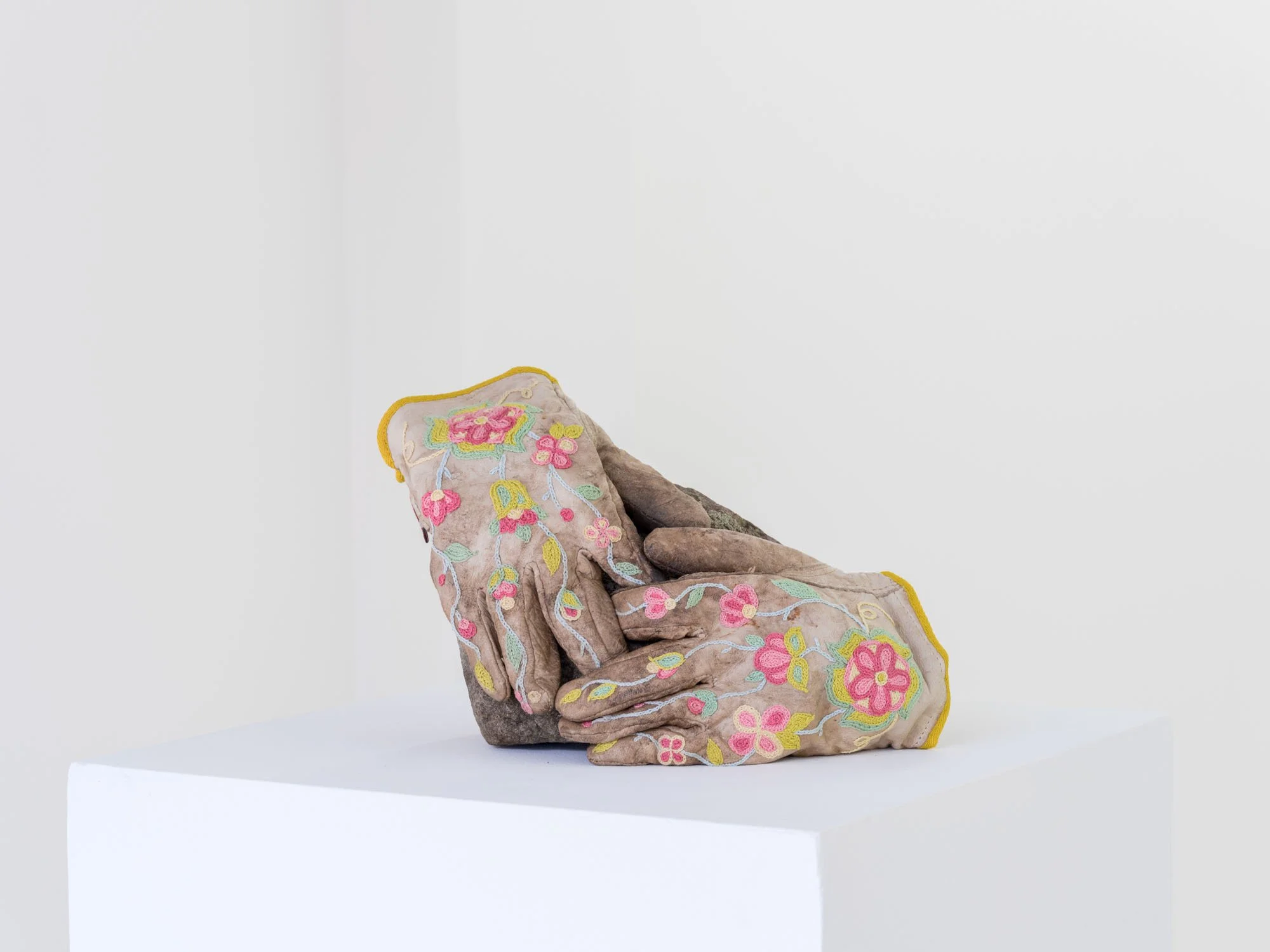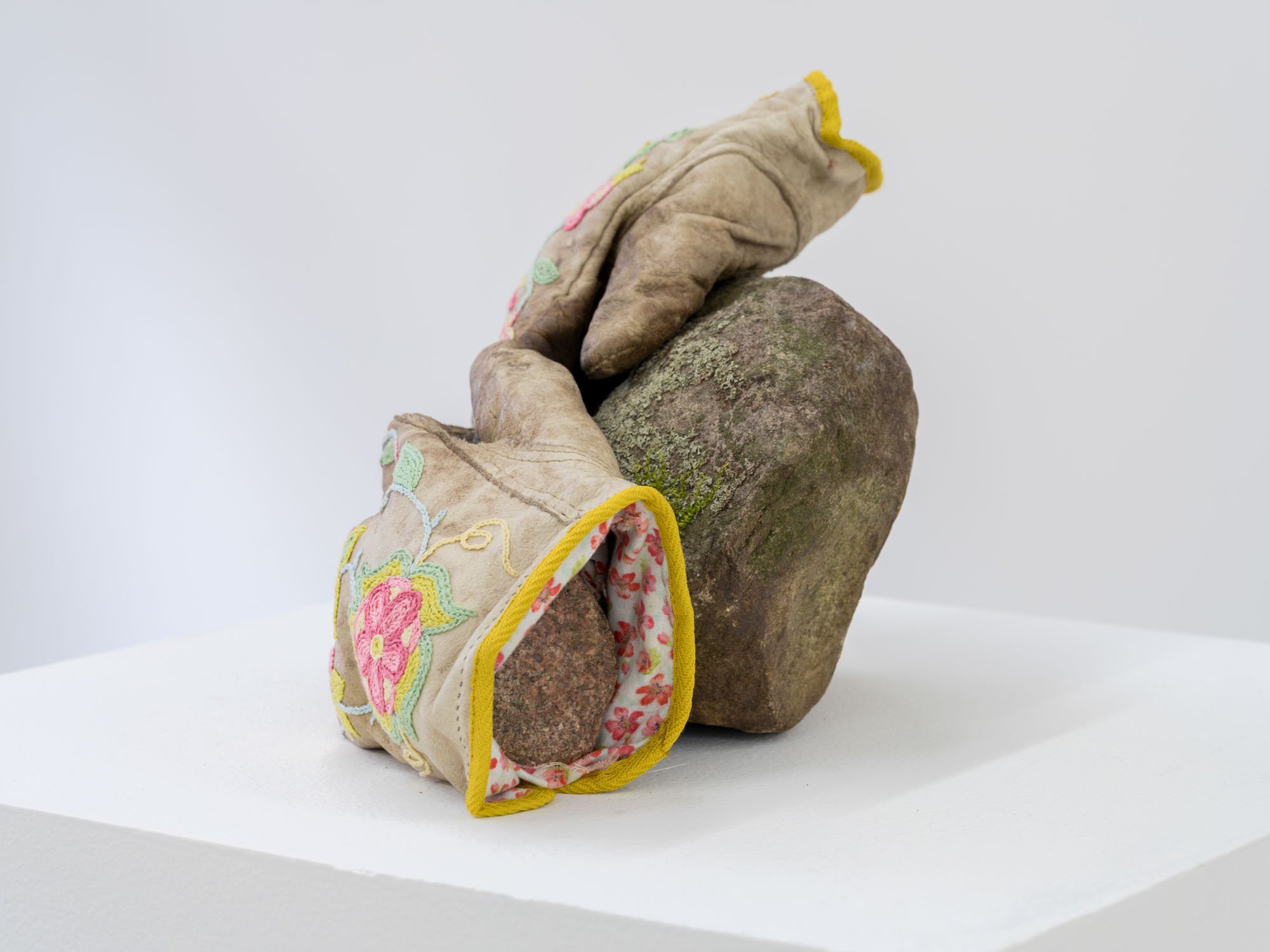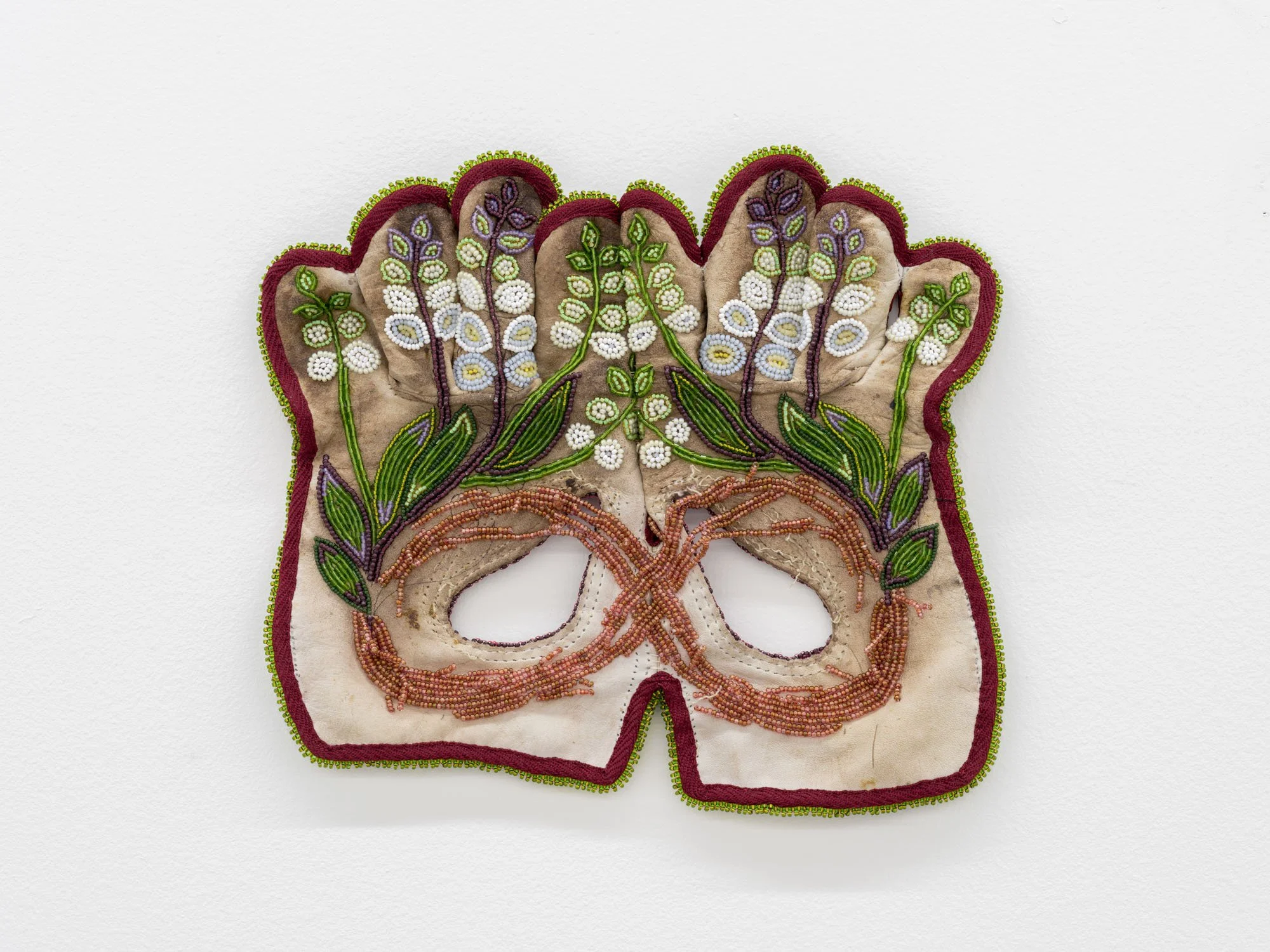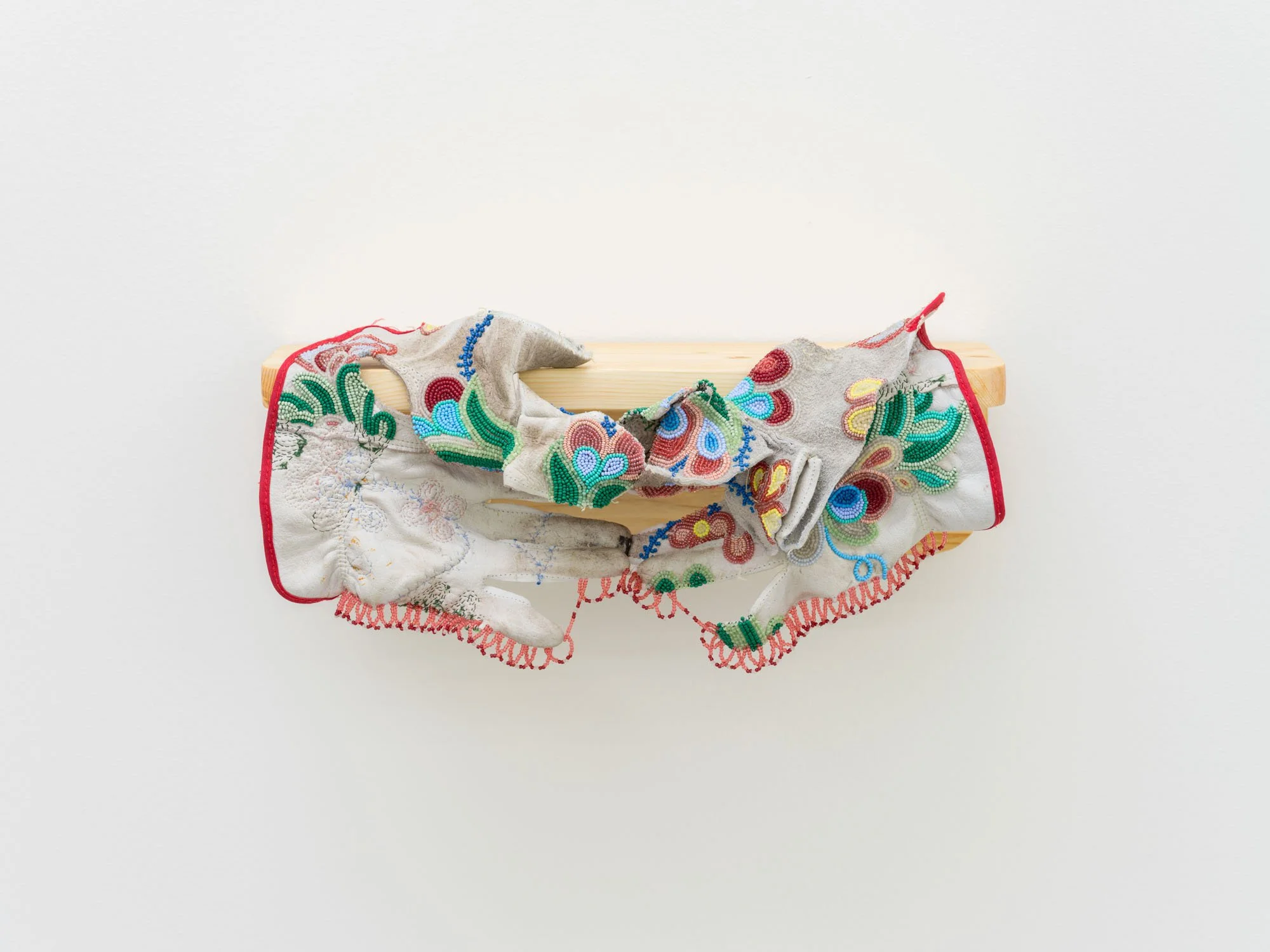Haley Bassett
We Work With Our Hands
From October 16 to November 22
Galerie Nicolas Robert, Toronto is pleased to present We Work With Our Hands, a solo exhibition of Haley Bassett’s most recent work and her first with the gallery.
Free trader, fisherman, farmer, hunter, gatherer, guide—the Métis Nation’s story is threaded through our evolving relationship with labour, moving between poles of alienation and agency. In We Work with Our Hands, I examine the multifaceted nature of Métis labour past and present and trace how our history is reflected in our current roles within the Canadian economy. How does our relationship to labour affect contemporary Métis cultural identity today? And what does it mean for the industrious Métis to decolonize labour within late-stage capitalism?
The emergence of the Métis as a distinct people coincided with the expansion of European settler colonialism and the fur trade economy in what is now known as Canada. While not created by capitalism per se, our ethnogenesis was shaped by the colonial and capitalist structures that enabled the Hudson’s Bay Company and other commercial enterprises to dominate Indigenous territories. In this way, our formation as a people is intimately tied to the colonial and economic foundations of the Canadian state.
Given the circumstances of our origin, our labour and economic interests bear particular significance to our history, culture, identity, and lifeways. As an example, to the Cree, we are otipemisiwak, meaning 'the people who own themselves' or ‘the people who are their own bosses.’ This moniker describes our emancipation from the Hudson’s Bay Company as well as our spirit and ethos as a people.
Historically, Métis communities were polyethnic societies. Acceptance within these communities required participation in a Métis way of life that wove together kinship ties, trade relations, language, religion, and laws centered around unique forms of labour organization, such as the buffalo hunt. This type of community structure, which privileged economic systems over racial essentialism, contributed significantly to our coalescence as a distinct people derived from many parent nations.
Consequently, even as we were born from the conditions of settler colonialism, these open and accepting Métis societies stood in opposition to the colonial project that sought to dispossess, divide, and categorize interrelated peoples into Indians and Whites. As we emerged, we offered a vision of a more just and inclusive post-contact society. However, the murder of Louis Riel and the defeat of the Northwest Resistance sounded the death knell for the Canada that could have been.
- Haley Bassett, 2025

